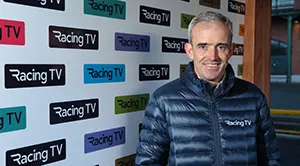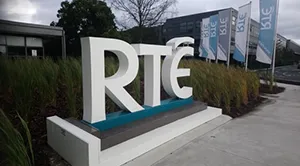
The Irish government’s looming gambling bill has been subject to much controversy since its announcement. The proposed watershed advertising ban, which will make airing gambling ads between 5.30am and 9pm illegal, has been one of the main proposals to spark debates among industry players. One such discussion was held last December by Irish broadcaster RTÉ, when coverage of a Leopardstown race was accompanied by criticism of how the advertisement ban could have a negative impact on the coverage of Irish horse racing. The panel discussion was held after Deputy Prime Minister Micheál Martin claimed that he did not believe that the racing industry’s fears would be “realised.”
As reported by The Irish Independent, Law Reform Minister James Browne has expressed criticism of RTÉ’s coverage of the topic, claiming that the December broadcast was not “a balanced conversation.” Mr Browne also deemed it crucial for RTÉ to be “balanced” and properly represent both sides of the debate. According to Mr Browne, opponents have overestimated the proposal’s potential financial consequences, and he said that such discussions need to involve individuals who are “experts in the area,” especially in regard to gambling addiction and how it is influenced by advertising.
The Racing Industry Believes Racing TV Should be Exempt from the Ban
 During the December broadcast, Racing TV presenter and ex-jockey Ruby Walsh stressed on how Irish racing relies on gambling companies in terms of funding, and noted that while reforms are necessary, stronger checks should be put in place that would determine whether individuals are fit to make racing bets. Jane Mangan, racing broadcaster, also participated in the panel discussion, claiming that Racing TV is a channel that users need to be at least 18 to subscribe to and thus should be exempt. This was also the reasoning of trainer Andrew McNamara and broadcaster for RTÉ Sport Hugh Cahill who, too, pushed for Racing TV to not be required to adhere to the advertisement ban.
During the December broadcast, Racing TV presenter and ex-jockey Ruby Walsh stressed on how Irish racing relies on gambling companies in terms of funding, and noted that while reforms are necessary, stronger checks should be put in place that would determine whether individuals are fit to make racing bets. Jane Mangan, racing broadcaster, also participated in the panel discussion, claiming that Racing TV is a channel that users need to be at least 18 to subscribe to and thus should be exempt. This was also the reasoning of trainer Andrew McNamara and broadcaster for RTÉ Sport Hugh Cahill who, too, pushed for Racing TV to not be required to adhere to the advertisement ban.
Mr Browne saw the argument of only adults being able to subscribe to Racing TV as not particularly relevant, seeing as he believes clients are not required to provide proof that they are 18 or older when they subscribe. He also criticised calls for Racing TV to be exempt from the watershed ad prohibition, as he sees this as something that will result in the television channel turning into a monopoly.
RTÉ Has Not Received Formal Complaints Regarding the Discussion Panel
 RTÉ issued a response to Mr Browne’s criticism, claiming that the broadcaster “is required to be fair, objective, and impartial” as mandated by Coimisiún na Meán (CnaM), Ireland’s media regulator. An emphasis was also placed on the fact that it is possible to file complaints against RTÉ if one deems a given broadcast to not be in adherence to Irish regulation, yet no such complaint has been filed against the broadcaster for the December panel discussion.
RTÉ issued a response to Mr Browne’s criticism, claiming that the broadcaster “is required to be fair, objective, and impartial” as mandated by Coimisiún na Meán (CnaM), Ireland’s media regulator. An emphasis was also placed on the fact that it is possible to file complaints against RTÉ if one deems a given broadcast to not be in adherence to Irish regulation, yet no such complaint has been filed against the broadcaster for the December panel discussion.
Meanwhile, disapproval of how the bill will be implemented remains strong. Last week, Conor Fennelly of the Racing Post Ireland criticised the government’s approach to the watershed advertising bill, pointing to how the National Lottery will receive exemption despite how the lottery’s advertising campaigns tend to be “incessant” and, according to Mr Fennelly, aired “with gleeful abandon to who might be listening.” He concluded by claiming that the lottery’s exemption shows that the government is leading a “hollow crusade” that targets Irish sports betting.
- Author


